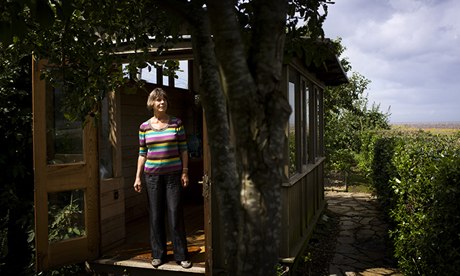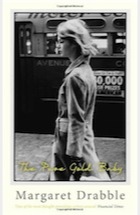Alex Clark enjoys Drabble's 17th novel, which has echoes of The Millstone

Drabble in her garden in Somerset, designed by her son Joe Swift. Photograph: Harry Borden for the Observer
Anna Speight's story is complicated from the start; that's what makes it interesting to the narrator of Margaret Drabble's 17th novel, a deliberately obscured figure about whom we know little for much of the time. Eleanor is not concerned with telling her own tale; the snippets of information she lets fall push us gently towards the assumption of a fairly settled and uneventful life in which even major developments, such as widowhood, unfold relatively naturally and calmly. We know that it can't be quite like this; but we have no option other than to focus our gaze according to the direction of Eleanor's story.
This is significant in a narrative that consistently prods at the idea of how we know what it is that we are seeing; how we determine the combined effects of historical context and personal circumstance, and how we can weigh out the minute adjustments we need to make as time flows on, subtly altering both us and the objects of our scrutiny.
Eleanor's account of several decades in the life of her neighbour, Jess, and Jess's daughter Anna are inevitably inflected with her own subjectivity; and yet, borrowing from Jess's anthropological background, Eleanor presents her findings with a measured and studied neutrality. But the urge to fix a life in time and place, to map its contours and diagnose its deficiencies, is not that simple to resist.
More
Eleanor's account of several decades in the life of her neighbour, Jess, and Jess's daughter Anna are inevitably inflected with her own subjectivity; and yet, borrowing from Jess's anthropological background, Eleanor presents her findings with a measured and studied neutrality. But the urge to fix a life in time and place, to map its contours and diagnose its deficiencies, is not that simple to resist.
More

No comments:
Post a Comment